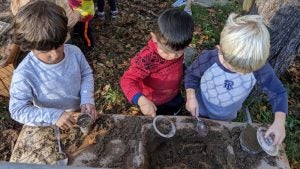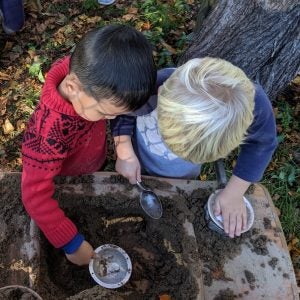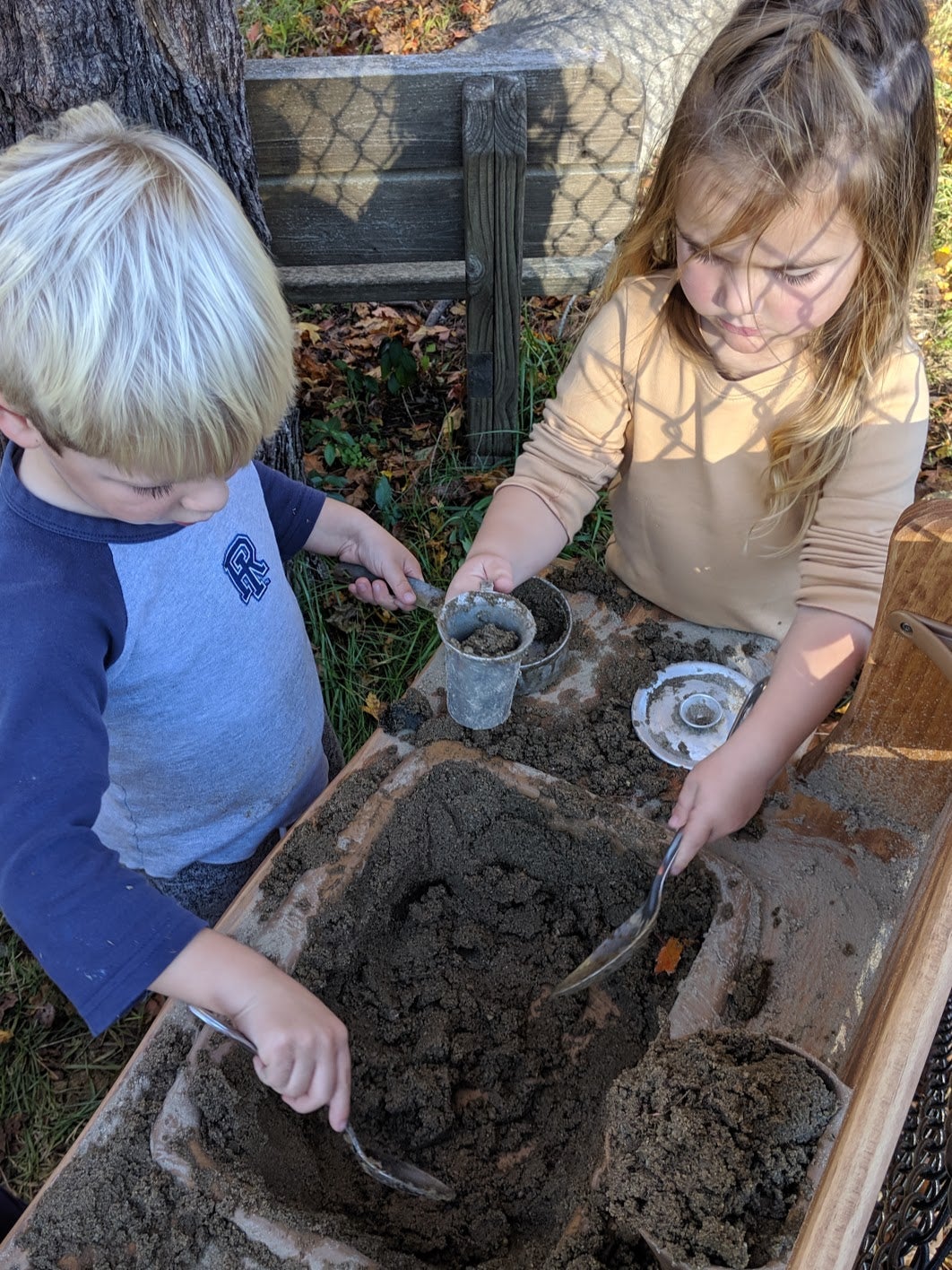CDC installs mud kitchen for sensory, cognitive development, thanks to $1,000 grant
Young students in the URI Child Development Centers can “get elbow deep in mud” while developing sensory perception, motor skills, math skills and more, thanks to a new mud kitchen in the facility’s playground, funded by a $1,000 grant from the Local Initiatives Support Corporation (LISC).
The Child Development Center, part of the College of Health Sciences’ Department of Human Development and Family Studies, recently applied for the “Out of the Sandbox” grant, which called for proposals to implement a “creative, low-cost, high-impact change to an indoor or outdoor space to improve children’s daily experiences.” The mud kitchen will serve to increase sensory, dramatic play, social interaction, and social studies learning opportunities in the CDC’s outdoor environment.
 “We think of our playground as an extension of our indoor classroom,” MacLeod said, adding that children in the program use the outdoor facilities year-round. “It’s not only a time to run around and get fresh air; the teachers plan to incorporate the outside space so it is part of the actual lessons they’re teaching. Plus the kids just love it. There’s been a lot of digging in the sand this week. It’s a place they can get elbow deep in the mud if they want.”
“We think of our playground as an extension of our indoor classroom,” MacLeod said, adding that children in the program use the outdoor facilities year-round. “It’s not only a time to run around and get fresh air; the teachers plan to incorporate the outside space so it is part of the actual lessons they’re teaching. Plus the kids just love it. There’s been a lot of digging in the sand this week. It’s a place they can get elbow deep in the mud if they want.”
 Children have been preparing pumpkin muffins, soup and pumpkin pies in the mud kitchen since the facility was installed last week. The kids themselves helped set the kitchen up, and parents donated kitchen utensils and accessories. “They really love it. It’s been a draw right from the beginning,” MacLeod said.
Children have been preparing pumpkin muffins, soup and pumpkin pies in the mud kitchen since the facility was installed last week. The kids themselves helped set the kitchen up, and parents donated kitchen utensils and accessories. “They really love it. It’s been a draw right from the beginning,” MacLeod said.
In addition to promoting social interaction among the children — and simply providing them a fun activity — the mud kitchen facilitates learning in all domains of the Rhode Island Easly Learning and Development Standards, including:
- Physical health and motor development: Children can develop muscle strength carrying heavy pots of water and sand.
- Social and emotional development: Children engage in positive interactions with peers and adults as they play and negotiate the use of space and cooking utensils.
- Language development: Children engage in conversations as they pretend to serve each other mud pies.
- Literacy: Children can use drawing, dictation and inventive spelling to record a recipe for mud muffins or mud cookies.
- Cognitive development: Children use logic and reasoning to solve problems such as how to make the mud thicker.
- Mathematics: Children can practice counting and quantifying as they, for example, count up the twig “candles” on a mud cake.
- Science: Children can explore cause and effect by varying the amount of water in each cup of sand, turning the cups over to make mud castles and comaring the results.
- Social studies: Children can engage in socio-dramatic play by pretending to be a parent cooking breakfast or a chef preparing a meal in a restaurant.
- Creative arts: Children use the mud kitchen props to act out characters from such classic stories as The Very Hungry Caterpillar.

